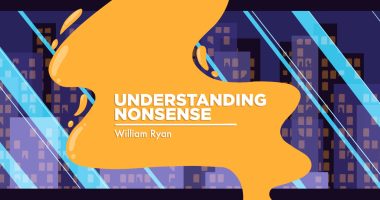The Pandemic Has Shown Us That Accessibility Isn’t Impossible

Christin Hume/Unsplash
The first time I had to drop out of school, I was in sixth grade. I had just been diagnosed with cystic fibrosis-related diabetes. My family and I decided we didn’t feel safe navigating insulin injections in the school system, especially before I was comfortable with my own diagnosis.
I was elated to start home-schooling. Looking back, this was probably the first time I walked away from something that didn’t suit my healthcare needs.
Years later, after transferring from community college to my first four-year university, I had to drop out of school for the second time.
While I was excited to home-school through middle and high school, dropping out of college sent me into a depression. I had goals, then they were gone. After walking away from my university, I spent many weeks hooked up to IVs, wondering if I would be able to fulfill my dream of earning a bachelor’s degree, let alone a master’s or PhD.
I couldn’t recognize it in the moment, but there was another emotion resonating in that depression. I would lie there in the hospital bed watching some mind-numbing television or staring at traffic on the interstate, while simmering in my frustration at the injustice of it all. The system set up to help me had not done its job.
The Americans with Disabilities Act (ADA) was signed into law on July 26, 1990, to provide, in part, equal accessibility to disabled people. While I’m not here to downplay the importance of the ADA as a milestone in disability rights, one of its mainstays is to provide “reasonable accommodation” to anyone who qualifies as disabled.
I had been diagnosed with a Mycobacterium avium complex infection in my lungs, which requires an intense regimen of IV, oral, and inhaled antibiotics over an extended period of time. I asked to attend class remotely, but I was told by the disability support office that the university was not set up to support a change to the delivery method of a class as a “reasonable accommodation,” by the ADA’s definitions.
I was denied what I needed to succeed. Primarily, it was extra absences from class to receive treatment. But a complete absence of compassion from my instructors, people I trusted to grant me accommodations at their discretion, proved equally destructive to my mental health.
Specifically, I was told by an instructor that my grade would be dropped a full letter, in accordance with the syllabus attendance guidelines, if I could no longer attend class physically. This information came to me in an email while I was still in the hospital.
Not only did I not feel accommodated, I felt betrayed and rejected.
But that was in 2015. Fast-forward to March 2020. Thanks to Trikafta (elexacaftor/ivacaftor/tezacaftor), for the first time in my life, I could fathom the idea of not needing accommodations. I could take deeper breaths than I’d ever been able to before.
At the same time, the accommodations I’d begged for access to for years were being handed out to everyone equally as classes moved to remote synchronous instruction. Sometimes it really is about motivation. After watching firsthand how quickly universities converted the entire instructional system to online learning, I feel it’s clear why it wasn’t provided to me then: It seems my needs were seen as a burden on a system that was not set up to help me, though it said it would.
Now, roughly a year and a half after I started teaching remotely, universities all over the United States are gearing up to return to an in-person semester. It feels unsafe, and what’s frustrating is it doesn’t have to. We now know how to do our jobs in a way that can protect lives as the COVID-19 pandemic rages on.
The progress we’ve made over the past year in including disabled people feels like some small puzzle piece that I’ve been waiting to click into place my whole life. Not just for me, but for those around me who have faced similar struggles.
Online school isn’t for everyone. I don’t always love it, but as we move through what’s left of this COVID-19 pandemic, I’m hoping that we can continue to recognize the importance of inclusion and understand the definitions of reasonable accommodation, which can and should be more openly discussed and more empathetically provided.
***
Note: Cystic Fibrosis News Today is strictly a news and information website about the disease. It does not provide medical advice, diagnosis, or treatment. This content is not intended to be a substitute for professional medical advice, diagnosis, or treatment. Always seek the advice of your physician or other qualified health provider with any questions you may have regarding a medical condition. Never disregard professional medical advice or delay in seeking it because of something you have read on this website. The opinions expressed in this column are not those of Cystic Fibrosis News Today, or its parent company, BioNews, and are intended to spark discussion about issues pertaining to cystic fibrosis.









Comments
Maryam raza
Hi.. I have a child of 4 years having cystic fibrosois. Is there any treatment of ivacaftor? Pls let me know mr Kristin Entler